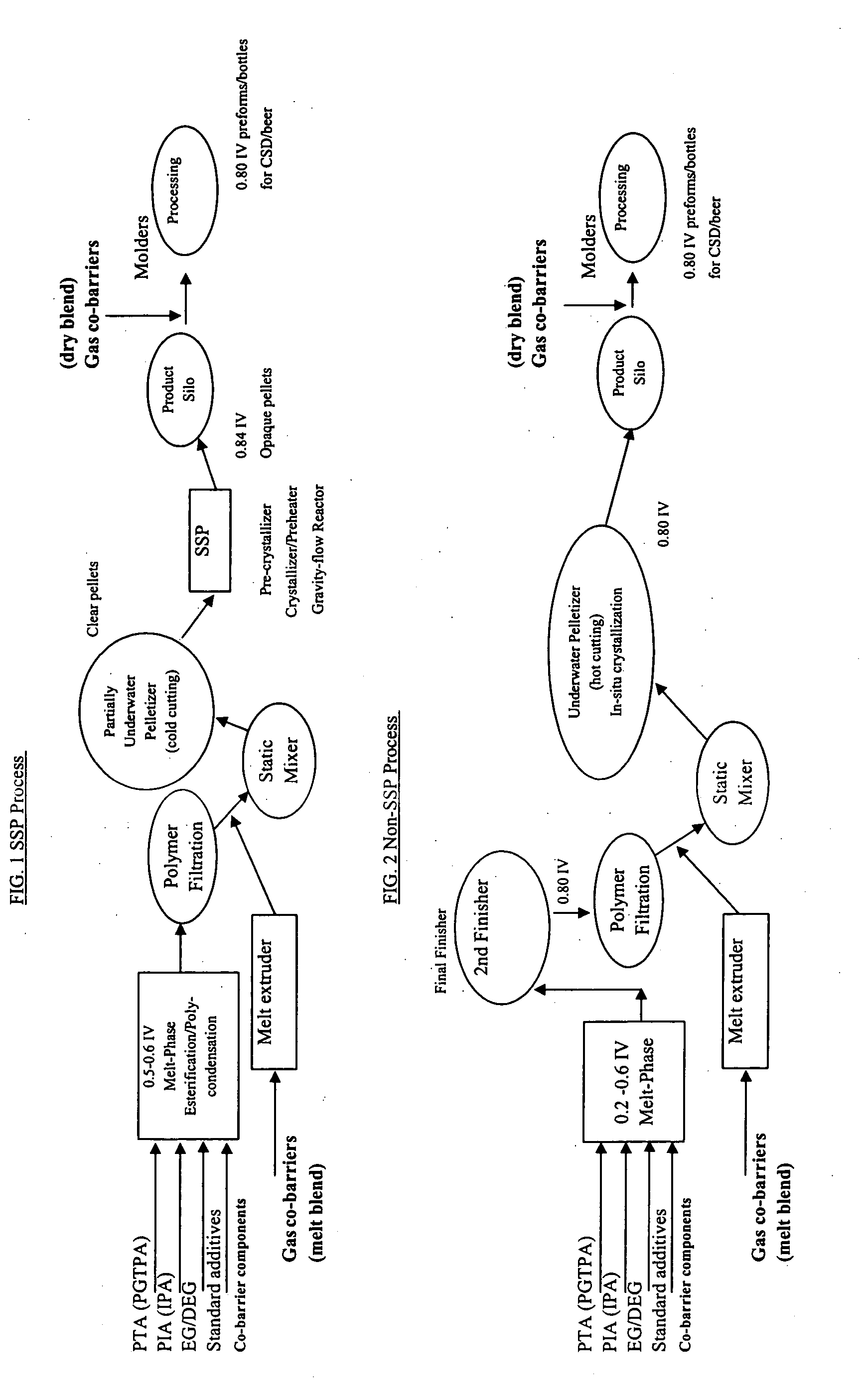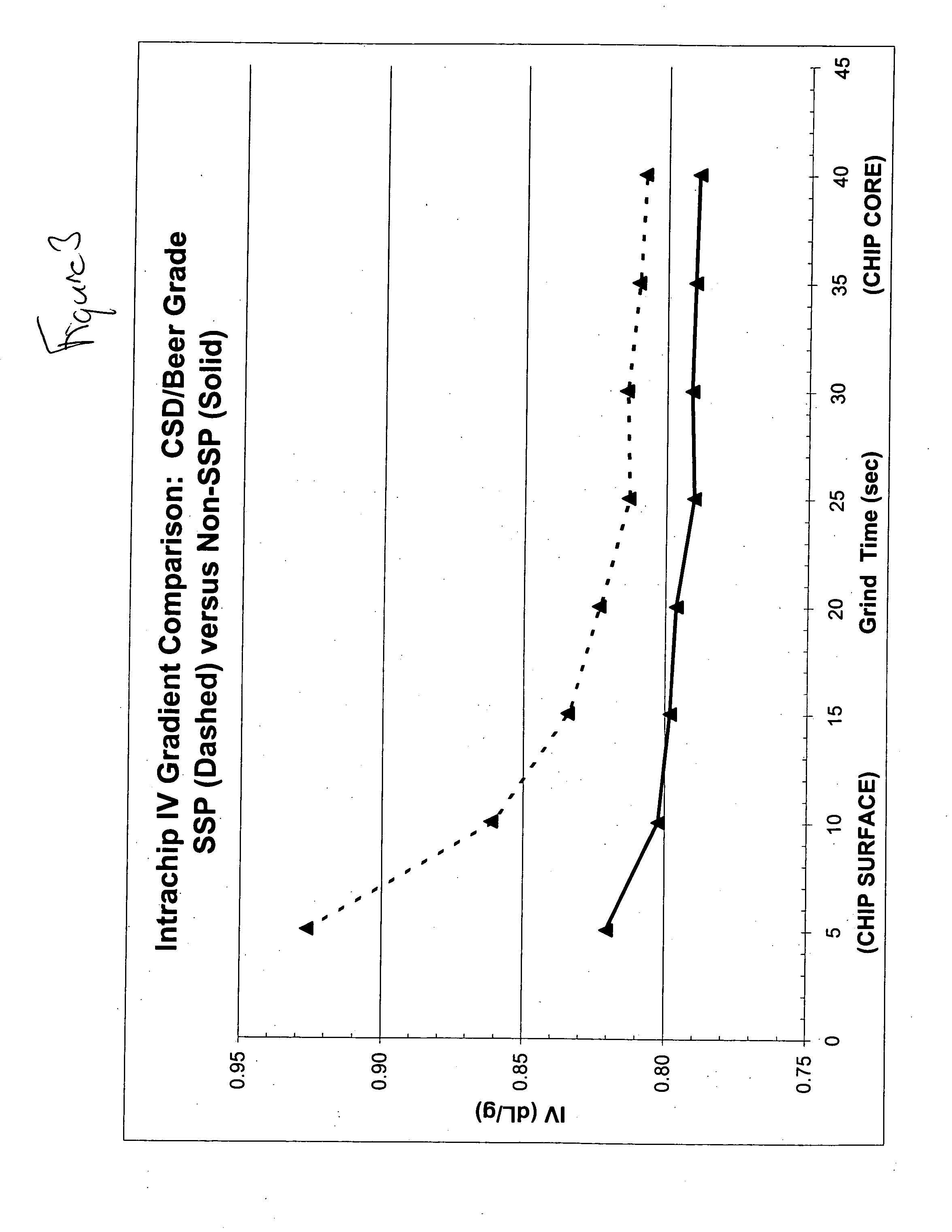Co-polyester packaging resins prepared without solid-state polymerization, a method for processing the co-polyester resins with reduced viscosity change and containers and other articles prepared by the process
a technology of co-polyester and packaging resin, which is applied in the field of co-polyester packaging resins prepared without solid-state polymerization, can solve the problems of affecting certain physical and chemical properties of polymeric materials, requiring high capital expenditure, subjecting the resin to a long heat history, etc., and achieves a lower degree of iv reduction, improved gas barrier resistance, and increased gas barrier additive amount
- Summary
- Abstract
- Description
- Claims
- Application Information
AI Technical Summary
Benefits of technology
Problems solved by technology
Method used
Image
Examples
examples
[0134] The intrinsic viscosity of samples of a polyester resin composition were tested. Control sets included a polyester resin composition containing a conventional, commercially available polyester resin made with a process that included solid-state polymerization. The intrinsic viscosity of the polyester resin composition was measured on virgin material before being subjected to melting other than the initial pelletization process.
[0135] A polyester resin composition containing only polyester resin made by a method not including solid-state polymerization was compared with the conventional polyester resin. Except for IV, the resin produced by non-solid-state polymerization (e.g., a resin according to the invention) was the same in composition as the conventional, commercially available polyester resin except for the difference in the method of manufacture.
[0136] The intrinsic viscosities before and after processing (i.e., before and after injection molding to form a bottle pre-...
PUM
| Property | Measurement | Unit |
|---|---|---|
| mol % | aaaaa | aaaaa |
| molar ratio | aaaaa | aaaaa |
| temperatures | aaaaa | aaaaa |
Abstract
Description
Claims
Application Information
 Login to View More
Login to View More - R&D
- Intellectual Property
- Life Sciences
- Materials
- Tech Scout
- Unparalleled Data Quality
- Higher Quality Content
- 60% Fewer Hallucinations
Browse by: Latest US Patents, China's latest patents, Technical Efficacy Thesaurus, Application Domain, Technology Topic, Popular Technical Reports.
© 2025 PatSnap. All rights reserved.Legal|Privacy policy|Modern Slavery Act Transparency Statement|Sitemap|About US| Contact US: help@patsnap.com



